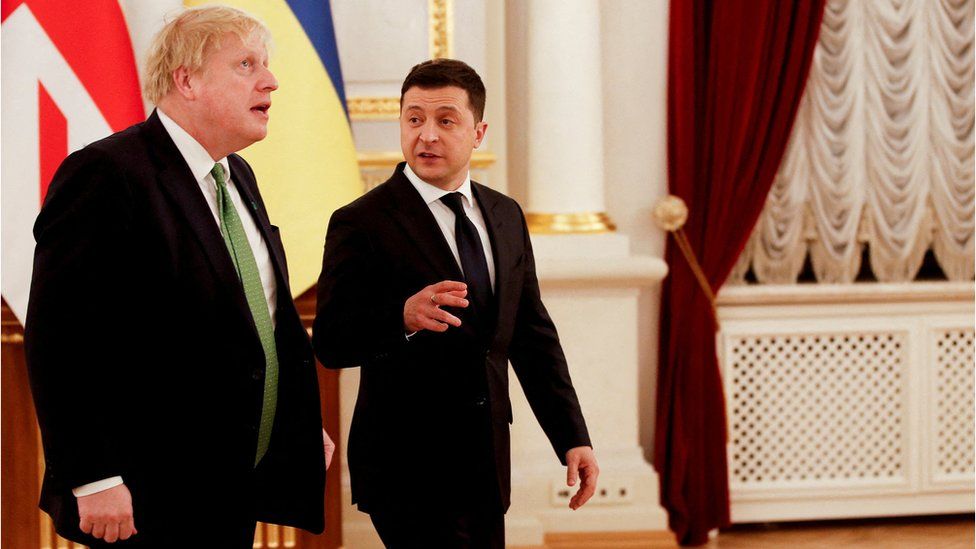
Boris Johnson, former Prime Minister of the United Kingdom, claimed in a BBC documentary that Vladimir Putin threatened him with a missile strike during a phone call in the lead up to the Russian invasion of Ukraine. Johnson stated that Putin made the comment after he warned him that the invasion would lead to disastrous consequences for Russia, including Western sanctions and increased NATO presence on its borders. Johnson also tried to dissuade Putin from military action by informing him that Ukraine would not join NATO for the foreseeable future. However, according to Johnson, Putin responded by saying, "Boris, I don't want to hurt you, but with a missile, it would only take a minute". The comment, however, was not included in the official accounts of the call released by Downing Street, which recorded minutes of all officially arranged phone calls.
The Kremlin spokesman, Dmitry Peskov, dismissed Johnson's claim as a "lie". He stated that Putin merely pointed out that if Ukraine joined NATO, the potential deployment of NATO or US missiles near Russia's border would mean that any missile could reach Moscow within minutes. Since the invasion, Putin has warned potential interferers that Russia's response would be immediate and hinted at the use of nuclear weapons.
In February 2022, the UK Defence Secretary, Ben Wallace, flew to Moscow to meet his Russian counterpart, Sergei Shoigu. The BBC documentary revealed that Wallace left with assurances that Russia would not invade Ukraine, but he stated that both sides knew it was a lie. He described it as a "demonstration of bullying or strength". He also said that Gen Valery Gerasimov, Russia's Chief of General Staff, told him "never again will we be humiliated".
William Burns, the CIA director, also had a significant encounter with Putin in November 2021. Burns stated that he was direct in delivering a message from President Biden to Putin, warning him that he would pay a heavy price if he launched an invasion. Burns claimed that Putin did not deny planning an invasion and listed his grievances about Ukraine and the West. He stated that he was "troubled before I arrived in Moscow, and I was even more troubled after I left".
Less than two weeks after Wallace left Moscow, as tanks rolled over the border on February 24, Johnson received a phone call from Ukrainian President, Volodymyr Zelensky, in the middle of the night. Johnson stated that Zelensky informed him that they were under attack everywhere and offered to help move the president to safety.


0 Comments